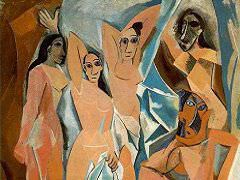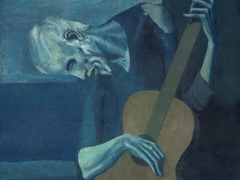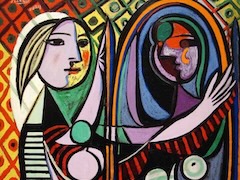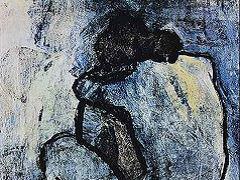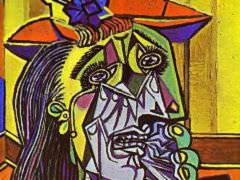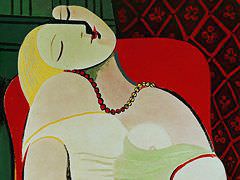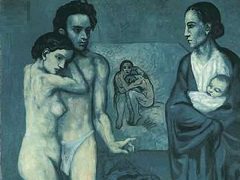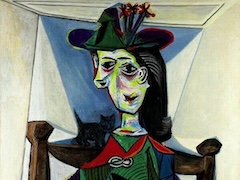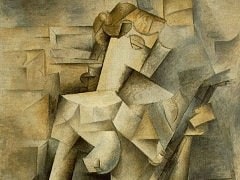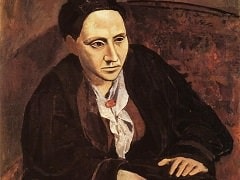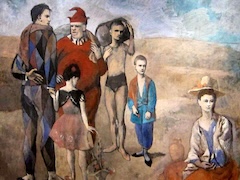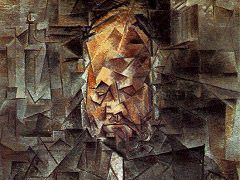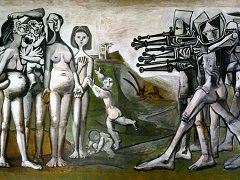Le Baiser (The Kiss) by Pablo Picasso
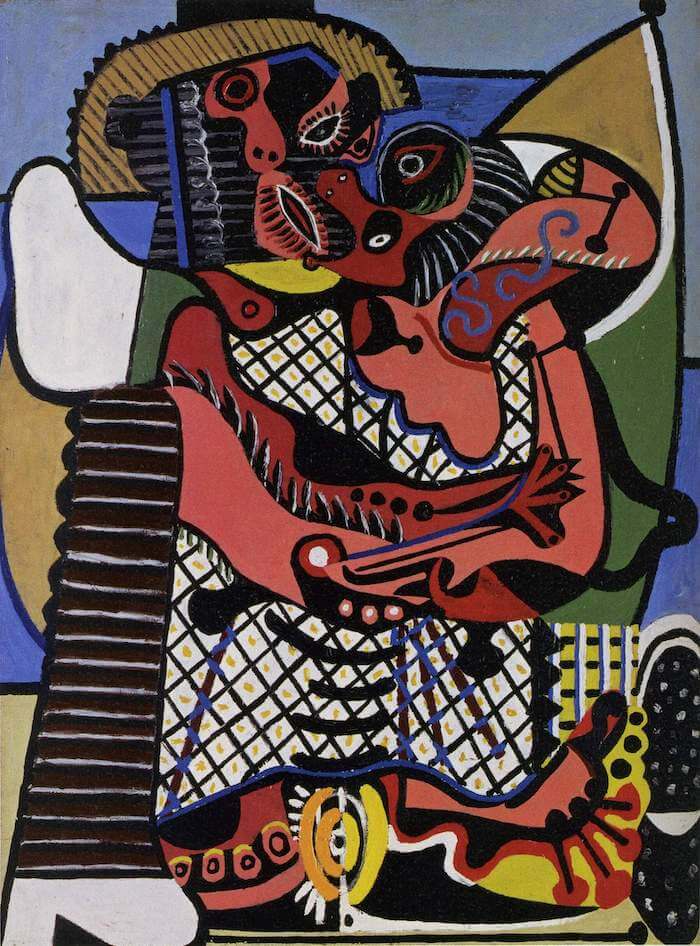
Le Baiser (The Kiss) depicts a mother clasping and kissing her child, and that is an outrageous travesty of time-honored theme of maternal love.
Like many of Picasso's most daring and intransigent works Le Baiser takes issue with the mainstream tradition of Western painting and the violation of traditional concepts of motherhood has an exact parallel in the violation of traditional images of motherhood. Popular paintings in the Louvre, including an earthily realistic Venus and Cupid, then attributed to Rembrandt, could have served as models for its composition. Le Baiser is also deliberately blasphemous in that it travesties innumerable devotional images of the Madonna and Christ Child - images such as Madonna del Prato by Raphael and Murillo's Virgin of the Rosary in the Prado, to name just two very famous examples. As Picasso pointedly remarked to Kahnweiler:
There are, basically, very few subjects. Everybody is repeating them. Venus and Love become the Virgin and Child, then - maternity, but it's always the same subject'.
The longer one looks at the intricate, decorated surface of Le Baiser the more aware one becomes of myriad biological signs for sexuality. Signs for ova multiply like cells under a microscope - the white shift printed with an egg pattern, the eyes, fingers and toes with their staring nuclei - and at focal points, such as the interlocking arms at the center of the composition and the red and black toes towards the bottom right, diagrammatic signs for fertilization appear. These indications of the ceaseless biological activity of copulation and procreation reinforce symbolically the theme of motherhood and suggest that there may be a connection between Le Baiser and Maternity of 1924 by Joan Miro, which was included in Miro's one-man exhibition at the Galerie Pierre in June 1925. But since the erotic representation of the mother-child bond appears to be dependent specifically on Freudian theory - not the case with Miro's Maternity - Le Baiser is perhaps more closely related to Ernst's case-book Oedipal images, despite the striking differences in style. Of particular relevance is another painting Picasso would certainly have known, anti-altarpiece Pietà or Revolution by Night of 1923 by Max Ernst, in which the petrified Son (a self-portrait), is being carried by the threatening bowler-hatted Father, who thus plays the part of the Madonna in a true pieta. Although Le Baiser occupies similar territory to these works by Miro and Ernst, it does not belong to the same category as either of them, for it is neither a pure ideogram like Maternity, nor a dream-scenario like Pietd or Revolution by Night. As usual, Picasso preferred to work within traditional pictorial genres.
Sigmund Freud first published his theory of the Oedipus Complex in The Interpretation of Dreams, where he says that the story as presented in Sophocles's Oedipus Rex:
moves a modern audience no less than it did the contemporary Greek one ... only because it might have been ours - because the oracle laid the same curse upon us before our birth as upon him. It is the fate of all of us, perhaps, to direct our first sexual impulse towards our mother and our first hatred and our first murderous wish against our father.
In the passage immediately preceding this classic formulation Freud states that a marked sexual preference is already apparent 'at an early age', boys regarding their fathers and girls their mothers as 'their rivals in love, whose elimination could not fail to be to their advantage'.
In Le Baiser we witness the sexual bonding of mother and son and sense their hostility towards the father-painter-beholder.


